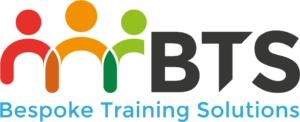Nikita Phillips, Candidate Support & Business Development Adviser, Bespoke Training Solutions, considers setting SMART goals when approaching how you tackle your exams.
Well, here we are, a couple of months into 2024, and I’m sure many of us have already thrown in the towel on our New Year’s resolutions (guilty as charged!)
With this in mind, we thought now would be the perfect time to talk about the importance of setting SMART goals, something that might have helped with some of my new year’s resolutions!
For those of you less familiar, SMART is an abbreviation for:
S – Specific
M – Measurable
A – Achievable
R – Relevant
T – Time Bound
Let’s break this down!
Specific
Let’s say you have a goal to excel in your upcoming exam. This goal is not specific enough. To make it more specific, ask yourself the questions: What, When, and Why?
Here’s what I mean by this…
What: This could be a goal to score at least 85% in your exam.
When: This could be the date of your exam which could be two weeks away.
And lastly, why: Ask yourself, why this is important to you? Perhaps aiming for a higher score, could help to boost your confidence rather than just getting through and scraping a pass.
Now your goal is much more specific. Instead of ‘excel in my upcoming exam’ we now have ‘score at least 85% in my exam sitting, in two weeks which will help to improve my confidence”.
Measurable
It is crucial to have metrics attached to our goals to make them measurable. If our goal is to excel in the upcoming exam, we need to determine what score would define excellence. By setting a specific target of achieving at least 85% in the exam, we have made our goal measurable. This way, we will be able to assess whether we have achieved the desired metrics.
Achievable
Let’s assess if the goal is attainable at this point. If you aspire to achieve a high score in the exam but have limited study time and haven’t even glanced at the study guide, it’s unlikely to be achievable in two weeks. So, how can we go about accomplishing this goal? What steps can we take in the upcoming two weeks to guarantee a minimum of 85% in the exam? Is this realistic or do we need to re-think?
Relevant
Time to ask a few more questions. Does this goal align with long-term aspirations? Will it help you stay on course for other goals you might have? Could pursuing this goal divert you from other, more significant goals?
After considering these questions, you will gain a clearer understanding of the relevance of your goal, which in turn should provide you with more motivation if it is of relevance.
For example, if you aspire to become a paraplanner. It would be logical to work towards obtaining your Diploma in Financial Planning to improve your technical knowledge. However, it may be less logical to focus on enhancing your advisory skills if you have no intention of becoming an adviser.
Time-Bound
Setting a deadline is so important for reaching your goals. Without a deadline, it becomes unlikely that you will achieve what you set out to do. When it comes to exams, the goal of achieving a specific score is already time-bound for written exams due to the exam date. However, if you are studying for one of the multiple-choice R0 exams, not setting a deadline to take the exam decreases the likelihood of accomplishing your goal. On the other hand, if you schedule your exam in advance and have a specific date to work towards, your chances of achieving your goal significantly improve.
What’s the lesson? What is the takeaway?
To those wondering, this is a Moana reference! You’re welcome. I may or may not have just returned from Disneyland….!
Using the SMART goals approach can give you a clearer sense of direction and increase your chances of success.
It’s especially beneficial when preparing for exams in financial services and advancing your career.
Take a moment to review your New Year’s resolutions (I am!) and consider how applying the SMART approach can make your goals more attainable.
We hope you found this article helpful and gained valuable insights on setting SMART goals. At BTS, we pride ourselves on providing unwavering support for your exams and career development in financial services.
If you need assistance in setting your SMART goals this year, whether it’s related to exams or exploring new opportunities, feel free to reach out to us. Let’s discuss your goals together!
Bespoke Training Solutions have been supporting regulated exams for 20 years this year! Known as ‘the exam experts’ within the industry, BTS provide support for the CII regulated exams by way of study guides, e-learning resources, and workshops for the full R0 suite and many AF units.
Visit https://www.bespoketrainingsolutions.com and check out the brand-new Careers Zone for study plans, answers to exam FAQs and lots more to support your journey.
Main image; lucrezia-carnelos-yGv-pvgRuiI-unsplash-






























